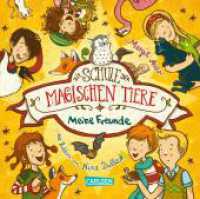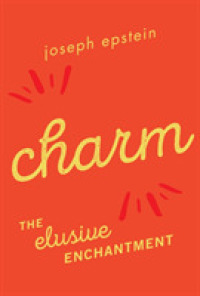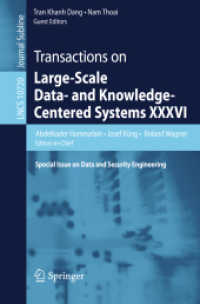- ホーム
- > 洋書
- > 英文書
- > Literary Criticism
Full Description
Northrop Frye and American Fiction challenges recent interpretations of American fiction as a secular pursuit that long ago abandoned religious faith and the idea of transcendent experiences. Inspired by recent philosophical thinking on post-secularism and by Northrop Frye's theorizing on the connections between the Bible and the development of Western literature, Claude Le Fustec presents insightful readings of the presence of transcendence and biblical imagination in canonical novels by American writers ranging from Nathaniel Hawthorne to Toni Morrison.
Examining these novels through the lens of Frye's ambitious account of literature's transcendent, or kerygmatic power, Le Fustec argues that American fiction has always contained the seeds of a rejection of radical skepticism and a return to spiritual experience. Beyond an insightful analysis of Frye's ideas, Northrop Frye and American Fiction is powerful testimony of their continued interpretive potential.
Contents
Acknowledgments
Introduction: Re-Enchantment, Post-Secularity and the Return of Transcendence in Western Culture
1. The Scarlet Letter: Puritan Imagination and the Kerygmatic Power of Sin
2. Henry James's The Europeans: Secularity and the Descent of the Word
3. Fitzgerald's The Great Gatsby: Modernism and the Death of the Word
4. Immanent Christianity in The Grapes of Wrath
5. "In the Name of the Lost Father": Postsecular Mysticism in On the Road
6. "I Will Call Them My People": Toni Morrison's Postsecular Gospel of Self and Community
Conclusion: Kerygma and the Promises of Post-Secular Imagination in Postmodern Times
Notes
Bibliography







